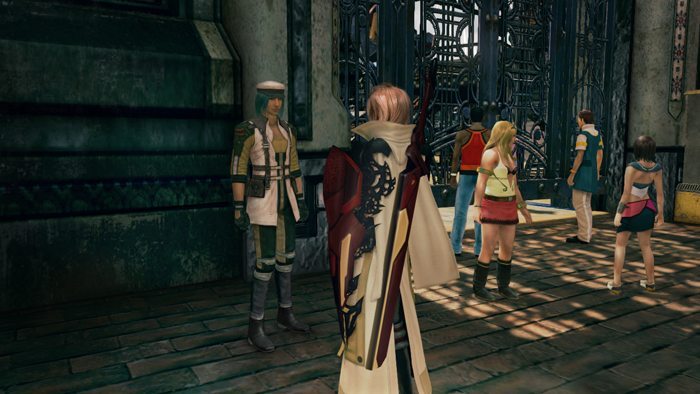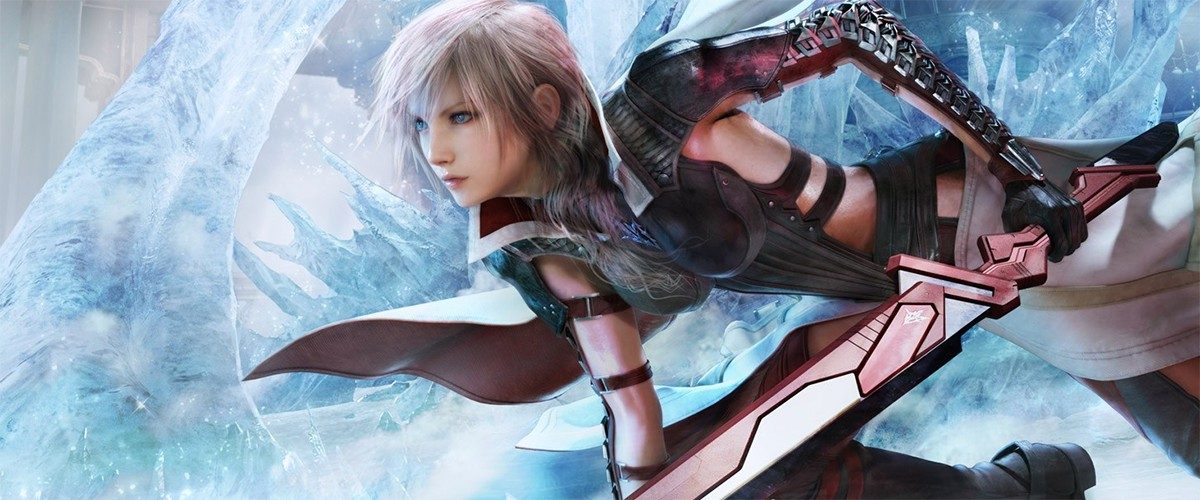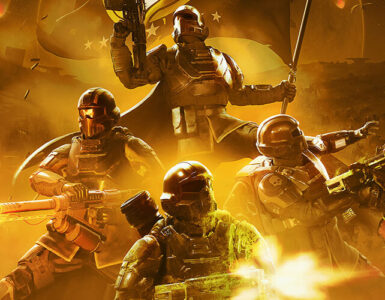This article contains some mild spoilers about Lightning Returns: Final Fantasy XIII. You have been warned, geeks!
Final Fantasy XIII was probably the most divisive entry in the history of the storied franchise. As the first FF title of the PS3/Xbox 360 generation, it was hotly anticipated and expectations were sky-high. Trailers and tidbits of information released by Square Enix only served to fuel the general perception that FFXIII would be the greatest JRPG ever.

It was unfortunate then, that critical reception towards FFXIII ended up being rather lukewarm upon the game’s release. Criticisms were mainly leveled at the lack of exploration, the flat characters, and the one-dimensional battle system. These were all fundamental elements that previous games in the series were known for, and the sudden perceived drop in quality upset many stalwart fans of the franchise.
Despite the tepid response, however, FFXIII clearly did well enough commercially that an unprecedented 2 sequels were released. With Lightning Returns, the conclusion of the FFXIII storyline is upon us. Does it end the series on a high note and give diehard fans the Final Fantasy game they deserve?
Repent, For The End is Nigh
Lightning Returns: Final Fantasy XIII picks up about 500 years after the events of FFXIII-2. Our titular heroine is awoken from her crystalline slumber by the deity Bhunivelze, and charged with purifying the souls of the people who inhabit the world of Nova Chrysalia; Bhunivelze is about to hit the great big reset button on the realm, and needs Lightning’s help to populate his new creation.
Of course, this is really just how the story begins. Final Fantasy games have a reputation for convoluted plots, and you can expect a multitude of (un?)expected twists to occur before the end. Even with this in mind, however, there are a multitude of problems with the storytelling and characterization that stick out.

If Square Enix have been listening to fan complaints about the boring characters, they certainly haven’t done much, if anything, to address these concerns. I get that Lightning is meant to be the cool, stoic protagonist, but the rest of the principle cast have barely changed in 500 years. This is a strange scenario where the player’s familiarity with the game’s cast actually detracts from the overall experience instead of enhancing it.
There is such a marked disparity between the passage of time and the effects that 5 centuries would have had on the denizens of the world. It almost seems as if characters and NPCs are incapable of going about their lives without Lightning’s divine intervention; it really makes you wonder just how on earth they survived the last 500 years without her.
There and Back Again, and Again… and Again
For a story-centric JRPG, this inexplicable disconnect would have been a grave problem on it’s own. Yet this issue rears it’s ugly head even with regards to gameplay, specifically when it comes to quest design.
Lightning Returns is chock full of sidequests, as Square Enix have done away with the traditional level-up system based upon experience points. Instead, Lightning acquires upgrades and new abilities through a multitude of different ways, such as story progression, collecting outfits and equipment, as well as performing sidequests.

Unfortunately, in Lightning Returns we have a severe case of quantity over quality when it comes to these sidequests.; you get a handful of pretty fun and even thought-provoking ones, but the vast majority of them are taken up by dreadful fetch quests.
With the sheer amount of “bring me X amount of Y”-type missions, you’d be forgiven for thinking you were playing one of those free-to-play MMORPG grindfests instead of a Final Fantasy game.
Lightning, holy savior and emissary of the divine Bhunivelze, relegated to courier duty to satisfy the whims of ordinary citizens. Regardless of how wonderfully crafted the rest of the game world may be, this is the sort of thing that will completely ruin the player’s sense of immersion.
Tick, Tock, Feed the Clock
But why bother, you say. If these mere sidequests are so banal, why not ignore them entirely and focus on the good parts of the game?
Sure, you could do that. Except you’d run out of time to save the world, and I’m not speaking figuratively. Apparently, the developers felt that the constant in-your-face exposition regarding the coming apocalypse wasn’t enough to get the point across, and have added an ever-present countdown timer in the upper-right corner of the screen, relentlessly ticking down to doomsday.

You start the game with 6 days on the clock, and completing sidequests grants you extensions, up to a maximum of 13 days of game time in total. With the way the game is structured, you can’t afford not to do these terrible sidequests if you wish to have sufficient time to enjoy the meat of the game.
The fact that most of these sidequests involve grinding for items only serves to perpetuate the vicious cycle; you will likely end up spending a significant chunk of additional time earned on these sidequests, so you do more sidequests to earn more time to spend on… you guessed it, more sidequests. Repeat ad nauseum. I’m sure you see where I’m going with this.
For all the contradictory elements present in this game, this is easily the worst one. Players are given an expansive world to explore, yet are severely hamstrung by time constraints, and forced to spend what precious time they have performing mundane tasks. You’d think that the appointed divine savior of the world would have more important things on her mind than that.
The return-of-investment on earning time extensions is questionable at best; the economics of time management aside, having Lightning running lame errands hardly ever feels meaningful, and makes the aforementioned issues with world-building and characterization even more glaringly obvious.
Gearing Up for a Fight
Not all is gloom and doom, however. To it’s credit, Lightning Returns does do a number of things right, chief among them the customization and battle systems.
For most of the game, Lightning is on her own. You have no party members to speak of, and this throws the familiar Final Fantasy dynamic of party composition right out the window. Instead, by collecting varying pieces of equipment, outfits, or parts of outfits, players can assign a combination of 4 skills to Lightning, generally fulfilling a character archetype in the process.

Players can have 3 of these combinations, referred to Schemata, actively available in battle at any time. The staple RPG roles of fighter, mage, and rogue are well represented, and some unique Schemata with less typical skills are thrown into the mix as well. These Schemata are essentially the JRPG equivalent of loadouts from FPS titles such as Call of Duty, and all of them can be customized to your heart’s content.
Speaking of which, Lightning Returns has some of the best customization I have ever seen in a single-player RPG; while you obviously can’t change Lightning’s physical features, the sheer amount of options available in terms of outfits, weapons and accessories, and even color combinations are nothing short of mind-boggling. Players will likely find themselves spending hours in the customization menus trying to find the optimum mix of aesthetics versus functionality.
There are upwards of 70 Schemata to be found, and as a nod to fans, many of them contain references to past Final Fantasy games and characters. All of these outfits are fully realized and visually represented on Lightning in-game, down to the tiniest detail. After all, Final Fantasy games have always been lauded for their excellent presentation, and the Crystal engine, while clearly showing it’s age, still does it’s job pretty well in this regard.

In combat, Lightning can switch freely between her 3 equipped Schemata at any time. Since battles are now fought in real-time, each Schemata comes with it’s own action gauge, and actions such as attacks and spells will deplete the gauge accordingly. Naturally, the amount of the gauge consumed is generally tied to the power and effectiveness of the action used by the player.
Inactive Schematas will have their gauges replenish over time; this is important, as careful management of the 3 gauges will allow savvy players to relentlessly assault enemies with powerful combos, while ensuring that Lightning is never caught in a situation whereby she cannot perform any actions.
Thanks to this system, battles are fast-paced and engaging, as they require constant input from the player. The game almost plays like an action-RPG in this regard, and this is certainly a welcome change from the comparatively dull combat that was in the previous 2 FFXIII games.
When Love and Hate Collide
Most reviewers and publications have not been kind to Lightning Returns, and while I am loathe to simply echo their sentiment, I must agree: Lightning Returns: Final Fantasy XIII is not a great JRPG by any means, and is most certainly not a great Final Fantasy game. Square Enix took a daring gamble with their flagship franchise, and unfortunately the parts that worked well were eclipsed by the parts that didn’t. It might be a difficult pill to swallow, but the message is clear: Sometimes, different isn’t always good.

Fans of Final Fantasy are quite the loyal bunch, and I know for a fact that most of them will still purchase – and enjoy – this game in spite of the negative press it has been getting.
After all, it would be extremely difficult to pass on the final chapter of a trilogy; regardless of quality, a story needs closure, and no self-deserving fan would want to be left hanging with loose ends untied.
Ultimately, I think that is what Lightning Returns sets out to be – the quintessential fanservice piece, a heartfelt thank-you to all the diehards who have stuck with the FFXIII saga for the past 5 years. In this regard, it succeeds admirably. As we bid farewell to Lightning and gang, we can only hope that Square Enix can restore what was once known as the king of JRPGs to it’s former glory in the years to come.
GEEK REVIEW SCORE
Summary
Lightning Returns: Final Fantasy XIII throws out almost everything you have come to love about Final Fantasy in favour of some poorly-executed new mechanics, but I commend Square Enix for not simply playing it safe with their flagship franchise. Still, it provides fans of Lightning and gang with a much-needed sense of closure; the game is essentially one big wish fulfilment fantasy that just barely manages to accomplish what it set out to achieve.
Overall
6.1/10-
Gameplay - 6.2/10
6.2/10
-
Story - 4.4/10
4.4/10
-
Presentation - 8.6/10
8.6/10
-
Value - 5/10
5/10
User Review
( votes)Brian loves video games, gadgets, and comic books – in other words, all things geeky. Obsessed with lifting things up and putting them down repeatedly, he also loves ice cream, putting things together, and the occasional good book.












